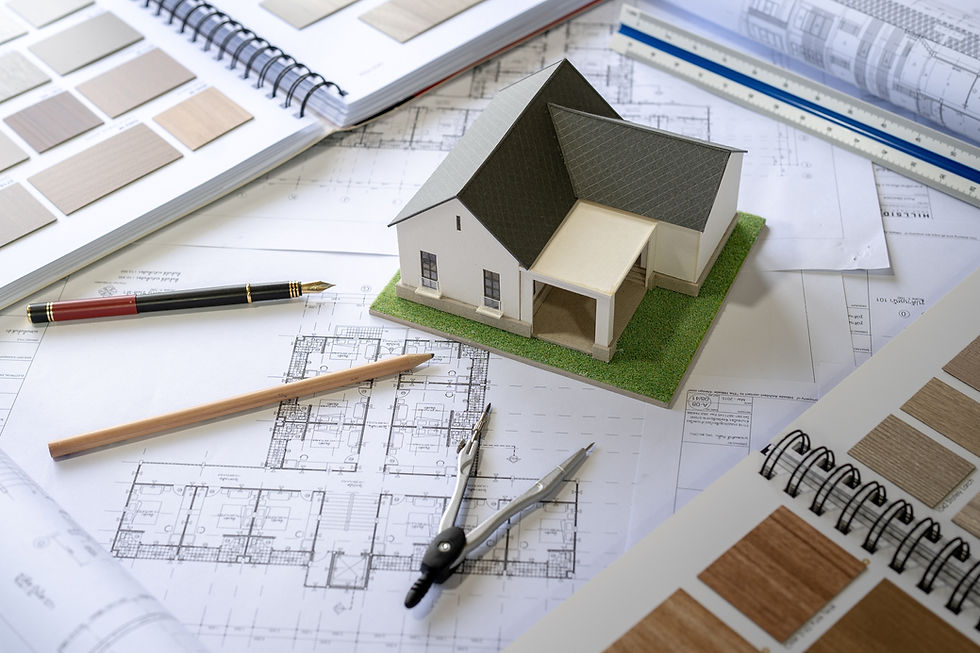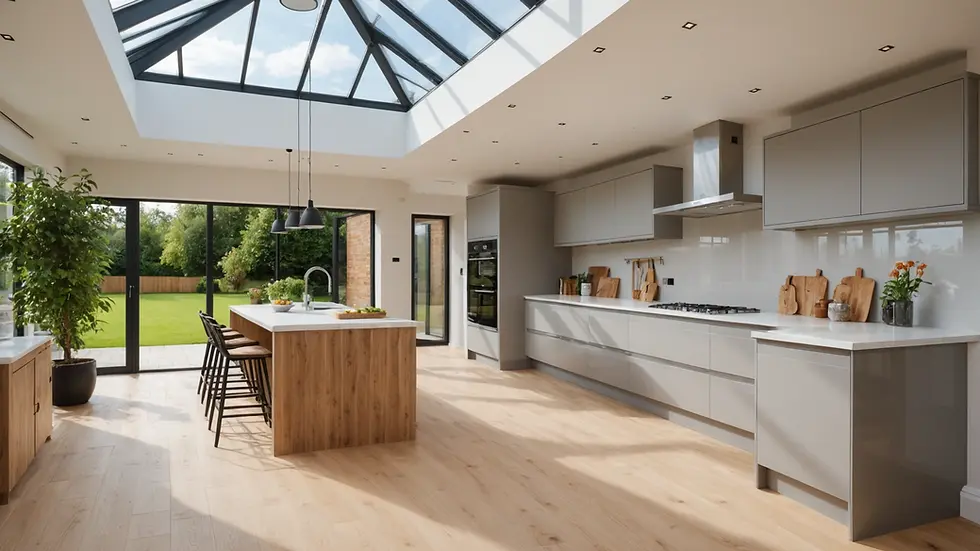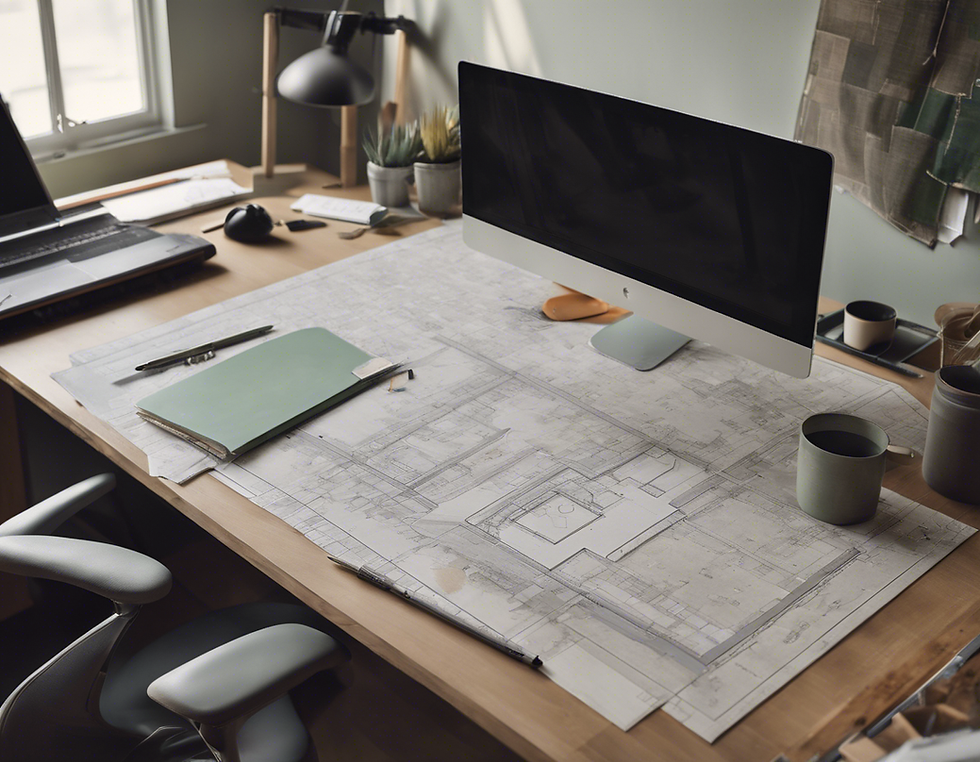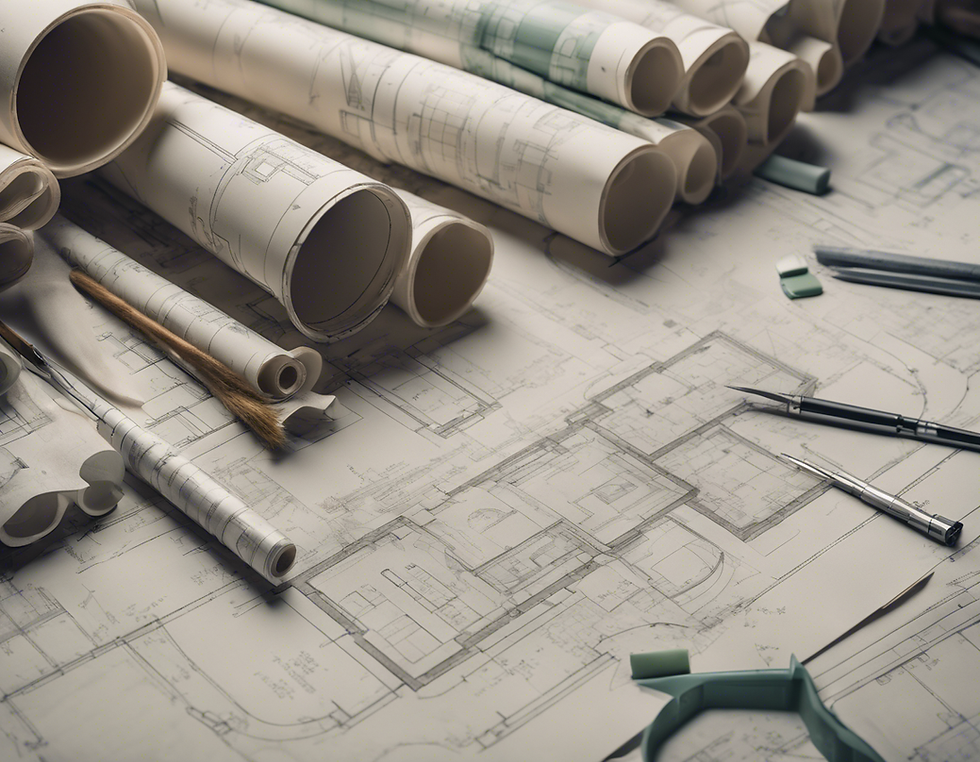Uncovering the Real Cost of Building an Extension: What Homeowners Need to Know
- Oli McQuillan
- Feb 16, 2025
- 3 min read
Building an extension is an exciting journey for homeowners eager to expand their living space, boost property value, or create their dream environment. Yet, before starting this project, it's vital to understand the hidden costs that can come into play. This guide will break down the various expenses associated with building an extension, empowering homeowners to plan wisely.
Understanding the Basics
When homeowners think about adding an extension, they often picture a seamless integration of old and new spaces. However, the financial aspects can be quite complex. Breaking costs into categories such as planning, design, construction, and interior finishes is key to budgeting effectively.
In addition, factors like local property values, the size of the extension, and its location can dramatically influence overall costs. Having a grasp of these categories enables homeowners to prevent financial strain during the project.
Planning and Design Costs
The initial step in the extension process involves planning, which requires obtaining necessary permissions and drafting design plans.
Planning Permission and Fees
Homeowners must first secure the correct permission from local authorities before breaking ground. Fees for planning permission can range widely based on where you live and the type of project. For example, in London, costs might soar from £500 to £2,000, depending on the complexity of the extension.
Professional Fees
Hiring an architect or designer is an important upfront cost. You can expect to pay professionals between £50 and £200 per hour. For fixed fees, costs generally range between £1,500 to £7,500 for comprehensive design services. These investments help create a detailed plan, thereby safeguarding against expensive errors later on.

Construction Costs
The bulk of your budget will go towards construction costs, which vary depending on several factors, including the type of extension and materials chosen.
Types of Extensions
Common extension types include:
Single-storey: Generally costs between £1,200 and £2,000 per square metre.
Double-storey: This can range from £1,500 to £2,500 per square metre.
Loft conversions: Prices are typically between £1,300 and £2,000 per square metre.
Choosing the right type of extension directly influences the overall financial picture.
Material Selection
Material choices affect both your initial costs and future spending. High-quality materials might necessitate a higher upfront investment but often lead to long-term savings thanks to reduced upkeep. For instance, choosing brick over wood might increase your initial costs by around 20%, but it could save you approximately £1,000 in maintenance over ten years.
Interior Finishes and Furnishing
Once the construction is complete, you must also think about interior finishes, which can significantly impact the final price.
Budgeting for Finishes
The expense of interior finishes can range from 10% to 30% of your overall construction costs. For example, if your construction cost is £50,000, you might need to budget an extra £5,000 to £15,000 for flooring, cabinetry, lighting, and furniture. To manage these costs better, prioritize essential items and consider staging your purchases over time.

Additional Costs
On top of the major expenses, homeowners should anticipate additional costs that may arise during the process.
Unforeseen Expenses
It is common for unexpected issues to surface during construction. Structural complications or changes in local regulations can quickly add to your costs. Setting aside an extra 10% to 20% of your total budget for contingencies is advisable. Also, remember to account for landscaping if your plans require it, utility upgrades which can add anywhere from £1,000 to £5,000, and possibly temporary housing during construction, which could run between £500 and £1,500.
Potential ROI
While the initial costs of building an extension might be significant, it is essential to consider the potential return on investment (ROI). On average, homeowners recoup around 70% to 80% of their costs when selling their property post-extension. Furthermore, the extension often enhances lifestyle quality and enjoyment in daily living.
Final Thoughts
Building an extension can be a rewarding yet intricate process. With thoughtful planning, clear awareness of costs—from permits and professional fees to construction and interior finishes—homeowners can avoid financial pitfalls. Understanding these expenses will guide you in making informed choices, aligning with your vision and budget.
Ultimately, a well-executed extension can transform your living space, increase its value, and elevate your comfort and satisfaction for years ahead.
Click HERE to get an accurate estimate for your extension idea!







Comments